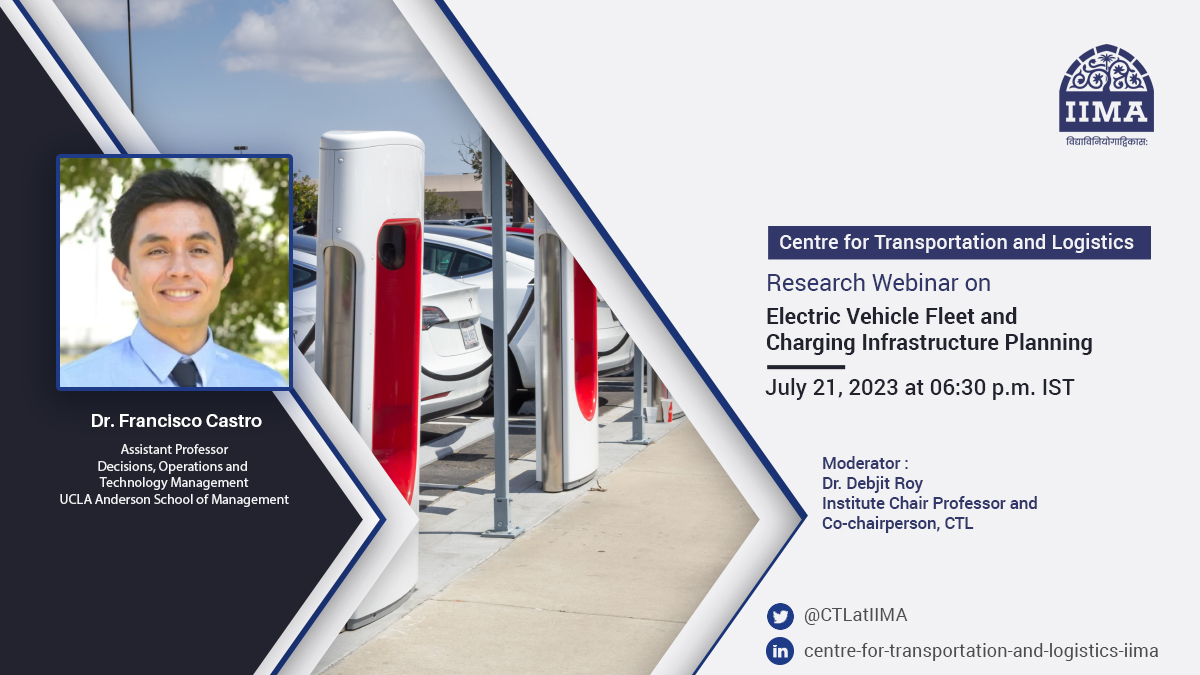
21/07/2023

Abstract:
We analyze an optimal electric vehicle (EV) fleet and charging infrastructure capacity planning problem in a spatial setting. As customer requests arrive at rate λ, the system operator must determine the minimum number of vehicles and chargers for a given service level along with a matching and charging policy that maximizes the service level. We provide a sharp characterization of the fleet size and the charging infrastructure requirements as the demand grows. While a system in which charging times are negligible needs extra Θ(λ^(2/3)) vehicles on top of the nominal capacity, we show that an EV system has a fundamentally different scaling. Due to charging times, the nominal capacity of the system is increased, but this extra capacity allows for an optimal EV dispatching policy to result in a fleet requirement of only Θ(λᵛ) for ν ∈ (1/2, 2/3], depending on the number of charging stations and the size of the EV battery packs. We propose the Power-of-d dispatching policy, which achieves this performance by selecting the d closest vehicles to a trip request and choosing the one with the highest battery level, thus optimizing the trade-off between the pickup distance and balancing the state of charge across the fleet. Our study provides valuable guidelines for determining the optimal fleet and charging infrastructure capacity for an EV-based on-demand transportation system.
About the Speaker:
Francisco Castro has been a faculty member at the UCLA Anderson School of Management since 2020, specializing in the operations and design of markets, particularly focusing on their spatial and incentive aspects. Previously, he served as a postdoctoral research scientist at Uber. Castro's research revolves around market design, developing models that capture essential market dynamics and utilizing rigorous theory to enhance understanding and explore new applications. His work offers practical guidelines for approaching matching, pricing, and capacity planning in digital marketplaces such as ride-hailing platforms. Castro holds a Ph.D. in Decision, Risk, and Operations from Columbia University Graduate School of Business, an M.S. in Mathematical Engineering from the University of Chile, and a B.S. in Engineering Sciences from the same institution.
